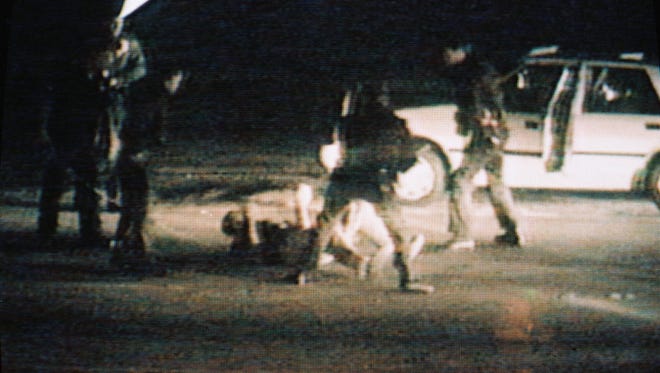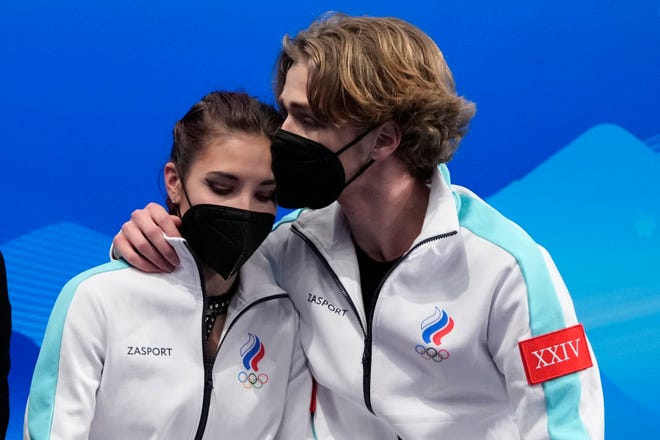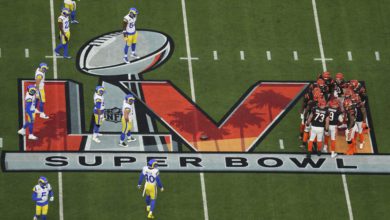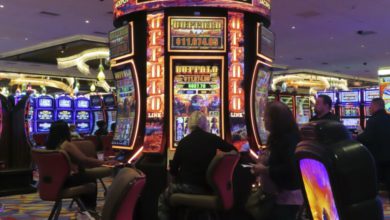

Thirty years after white police officers were caught on video beating a Black motorist named Rodney King, Los Angeles residents see persistent racism in local law enforcement as a bigger problem than those in some other cities across the United States.
Rogue cops are more likely to be held accountable now than they were then, an exclusive USA TODAY/Suffolk University Poll of Los Angeles finds. But a majority of Angelinos say the LAPD still uses force when it's not necessary, and a third of those surveyed call the department itself largely racist.
Surveys this summer in Detroit and Milwaukee, part of a series called CityView, found mixed views of law enforcement in those cities. But the Los Angeles Police Department received the harshest ratings for its treatment of local citizens. The polls, sponsored by USA TODAY and the Suffolk University Political Research Center, explore attitudes toward policing and community in American cities.
In recent years, cell-phone and body-camera videos that show police violence against unarmed Blacks have fueled the Black Lives Matter movement and helped make Eric Garner, George Floyd, Breonna Taylor and others household names.
Rodney King was in some ways the first. On March 3, 1991, before cell phones and their cameras were ubiquitous, a Los Angeles plumber who happened to have gotten a Sony camcorder a month earlier heard noise outside his San Fernando Valley home. From his balcony, he filmed the brutal scene of four white police officers kicking, hitting and tasing King more than 50 times.
George Holliday, who shot the grainy video, died two weeks ago at age 61 of complications of COVID-19. King, who won $3.8 million in damages from the city, would struggle for years with drug and alcohol abuse. He drowned in his backyard swimming pool in 2012.
"It was probably one of the first real exposures to actual police brutality, and then seeing it sort of replayed over and over again on that video was jarring," said Daniel Fitzgibbons, 41, a film finance producer and lifelong LA resident who is white. Then a pre-teen, he recalls watching TV coverage of businesses burning in the riots that followed. "It was definitely something that was eye-opening to me to understand that, sometimes, police can be wrong."
The poll of 500 Los Angeles residents, taken by landline and cell phone from Sept. 28 to Oct. 1, has a margin of error of plus or minus 4.4 percentage points.
An overwhelming 86% percent of those surveyed say King's beating had a major impact on their city. Just 9% said it didn't.
'Have you been in jail lately?'
Three decades later, Angelinos remember Rodney King.
Six in 10 of those surveyed personally recall the event from 1991, and another 3 in 10 have learned about it later. Just 8% say they hadn't heard of King and the confrontation that would riven the city. When a Simi Valley jury failed to convict any of the police officers involved, Los Angeles erupted DATE in six days of rioting that cost 64 lives and caused an estimated $1 billion in property damage.
King's beating and its aftermath had a major impact on Los Angeles and its residents, an overwhelming 86% of the city's residents now say. But just 29% believe the relationship between the community and its police has gotten better since then. A majority say relations are now either worse (32%) or about the same (26%).
Half of Black residents say relations have gotten worse; just 1 in 5 say they have gotten better.
"To a certain degree, it's changed and gotten a little better, but it hasn't gotten to where it needs to be, let's just put it that way," said Terry Hall, 63, a service attendant who is Black said in a follow-up interview after being polled. Even recently, "I've been pulled over and. . . one of the questions I was asked was, 'Have you been in jail lately?'"
Thirty-two percent of those surveyed agree with the statement, "The LA police are racist in the way they treat people, even if some of them try to do a good job." Sixty percent instead agree with the statement, "The LA police generally do a good job and treat people of different races fairly, even if there are a few bad apples on the force."
That is a a more negative judgment than residents of Milwaukee and Detroit made of local law enforcement in CityView polls. While they had some criticism of police officers, Detroit residents by 77%-16% said the city's cops mostly treated people fairly. In Milwaukee, that was the view by 63%-29%.
More:Exclusive poll finds Detroit residents far more worried about public safety than police reform
More:Inside one city: Milwaukee residents dissatisfied with police amid a nationwide reckoning
Angelinos are also more likely to say local police use force when it wasn't necessary. That is the view of a 52% majority of those in Los Angeles, compared with 34% in Detroit and 45% in Milwaukee.
"As a Latino gay male, I am constantly fearful that I'm going to get stopped by the police for something like a traffic evaluation and it escalating further," said Rene Vega, 38, a manager in the healthcare sector. "Anything race-related, I don't think that they have improved" since King's beating and the riots that followed.
"I remember being scared as a child, hearing the helicopters at night and the military down the street," he said. "I remember my father lost his job due to his store was right on Vermont and Washington, and the looters looted the store and then they burned it down."
Convictions seen as more likely today
One thing that has changed: Los Angeles residents say rogue officers are more likely to be held accountable by the courts today. In 1992, all four officers were acquitted of assault, and three of the four were acquitted of using unnecessary force. The jury deadlocked on the force charges against the fourth officer.
A year later, two of the four were convicted on federal charges of violating King's civil rights.
Nearly two-thirds of those polled, 63%, say officers are more likely to be convicted today; just 8% say that is less likely.
"The police now have to be way more cautious because they're under a scrutiny," said Melanie Mohr, 45, who works in the entertainment industry. But she worries the effect may put officers in peril. "Any misstep in judgment is going to be potentially career-ending or prosecutable, and I think that's a little bit of a sad and scary position for them to be in."
Those concerns may also make police enforcement less effective, warned Tony Mattera, 43, a longshoreman whose grandfather is a retired LAPD officer.
"They're doing the best they can with the amount of push back they're getting," said Mattera, who is white. "It's not even push back from the community; it's push back from their own city council and higher-ups and in their own department. These guys are not allowed to do the policing that they used to do and solve the problem."
For all their criticism of the local police, Angelinos also acknowledge relying on them. A 54% majority have at some point called the police for help. Nearly nine of 10 would be likely to provide information to the police if they witnessed a crime. By more than 3-1, 64%-19%, they would feel safer with more rather than fewer police officers on the job in their neighborhood.
But nearly a third, 32%, support the idea, not defined in the survey question, of "defund the police." That's higher than the percentages who endorsed the progressive slogan in Detroit (23%) and Milwaukee (29%). In Los Angeles, more than 6 in 10, 61%, support cutting some funding from the police and using the money for social services to help the homeless and the mentally ill.
More:Rodney King's daughter is helping African American fathers spend time with their children
Overall, Los Angeles residents were twice as likely to give the police department the lowest rating of "poor" (20%) than the highest rating of "excellent" (10%). Twenty-nine percent called the LAPD "good" and 38% "fair."
Those assessments divided along racial lines. While 53% of whites and 54% of Hispanics rated the police department as fair or poor, that was the view of 80% of Blacks and 69% of Asian-Americans.
Juanita Sumby, 44, a lifelong Angelino, says racially-charged misbehavior by police hasn't changed over the years, but that awareness of it has. "It's always been this way," she said. "The fact that people have cell phones, I think kind of brought it to light."
She can still recall that day three decades ago when she first saw the shocking video of Rodney King's beating.
"I just remember them playing the tape in cycles on the news, watching him being beat up by these police officers," said Sumby, who is Black. "I have a brother, and my uncles and my grandfather, all Black men, I think it was just painful for them to watch as well – very traumatic – because I think they've all experienced similar behavior from LAPD. It just hit home."
Source link








